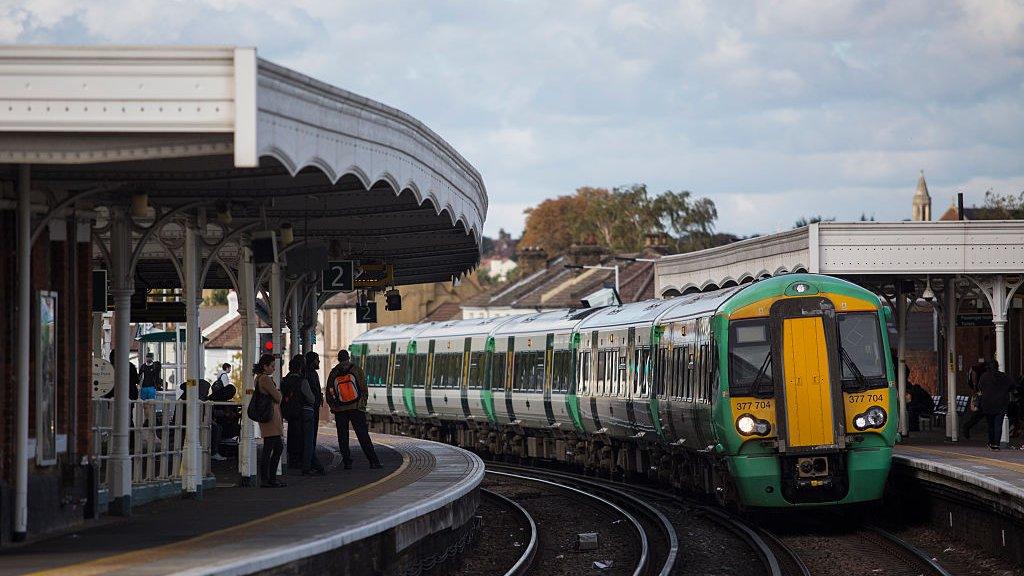Rail fares face biggest rise for five years
- Published
- comments
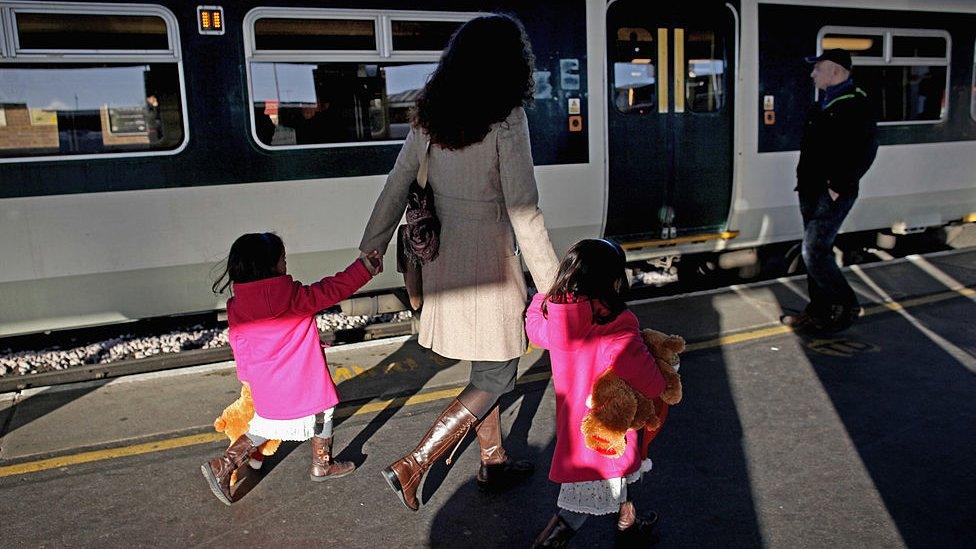
Millions of rail users in the UK will see the price of regulated rail fares rise by up to 3.6% in January.
The permitted increase - which is taken from the Retail Prices Index (RPI) inflation measure for July - will be the highest since January 2013.
Passenger groups said commuters would be worst-hit, and suggested that the RPI measure should be scrapped.
The most widely watched and used measure, the Consumer Prices Index (CPI), was unchanged at 2.6%., external
The fare rises will affect "anytime" and some off-peak fares as well as season tickets in England and Wales.
In Scotland, it is mainly commuters who will be affected, with off-peak fares rising by a smaller amount. The Scottish government currently limits rises in off-peak fares to RPI minus 1%.
There are no plans for increases in Northern Ireland.
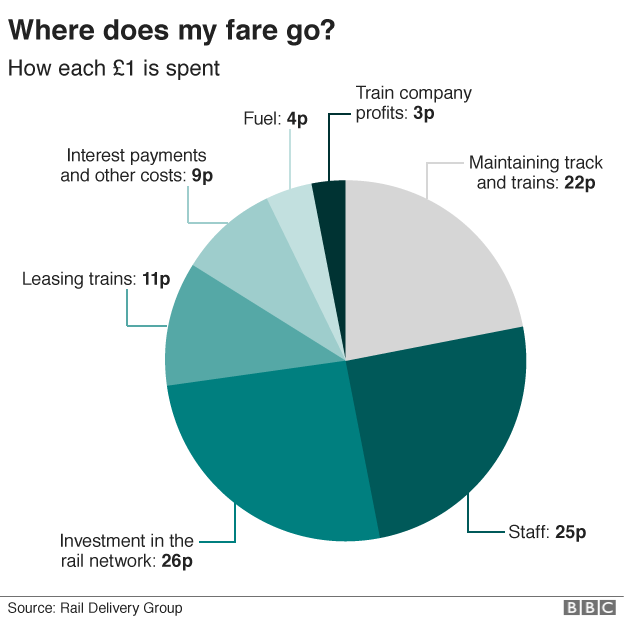
Unregulated fares, which include super off-peak travel and advance tickets, will be set in December.
Transport Focus, which represents the interests of passengers, said rail users were already fed up with getting poor value for money.
David Sidebottom, director of Transport Focus, said: "Yet again, passengers, now majority funders of the railway, face fare rises next January. Commuters do not give value for money on their railways a high satisfaction score - just one third according to our latest survey.
Transport Focus also queried the use of the RPI measure to determine fare increases: "Why is the Government not using its preferred measure of inflation: the one that is used to determine wages and pension increases, and one which is often lower than RPI? Why not use the Consumer Prices Index for rail fares too?"
Justified rises
The CPI measure has gradually replaced the RPI over the past few years as the benchmark for changes to most government-controlled funding.
James Tucker from the Office for National Statistics (ONS) said it was not in favour of using RPI as a benchmark: "We know there will be a focus on the RPI this month, but the National Statistician has been clear it is not a good measure and we do not recommend its use."
The Department for Transport rejected the idea of using CPI, saying RPI was used across the rail industry - for example in calculating the cost of running train services.
The government said fare increases were justified by improvements to the network.
"We are investing in the biggest rail modernisation programme for over a century to improve services for passengers - providing faster and better trains with more seats," a spokesperson for the Department for Transport said.
"We have always fairly balanced the cost of this investment between the taxpayer and the passenger."

Sample season ticket increases - if implemented fully in line with RPI
Reading-London currently £4,308 would rise to £4,464
Bournemouth-London currently £6,500 would rise to £6,736
Gloucester-Birmingham currently £3,968 would rise to £4,112
Loughborough-Leicester currently £1,084 would rise to £1,124
Source: Transport Focus

'Increasing proportion'
Since 2007 it has been explicit government policy for passengers to pay more of the overall cost of running the country's rail system, and for taxpayers as a whole to pay less via subsidies.
The coalition government continued the policy of shifting the financial burden to the wallets of passengers, though with less aggressive price increases than before.
A research paper, published earlier this year by the House of Commons Library, cited earlier figures from the rail regulator in March 2016 showing that "passengers have contributed an increasing proportion of the rail industry's income relative to taxpayers over the past four years - up from 55.6% in 2010-11 to 65% in 2014-15."

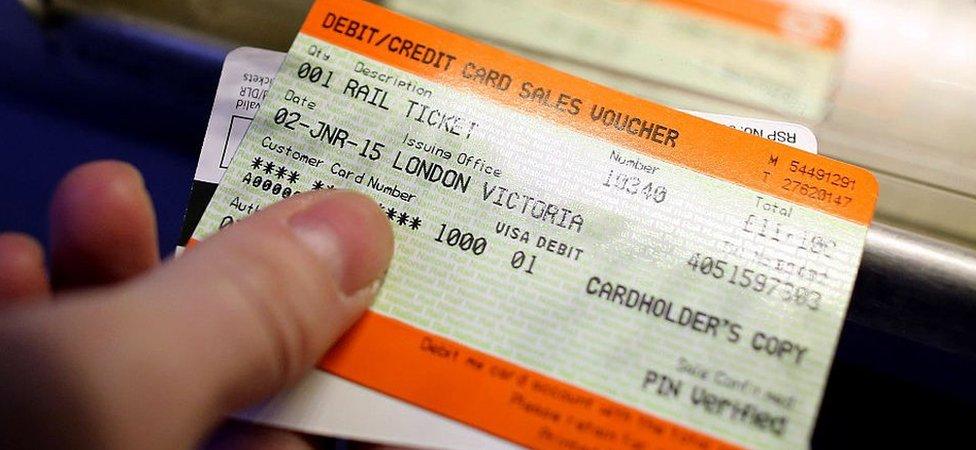
Analysis: Richard Westcott, transport correspondent
Oh the irony... regulated fares were meant to be the government's way of stopping private rail firms from overcharging passengers.
They apply to tickets where people don't have much choice but to go by train: commuting into big cities, for example.
But for many years, ministers have deliberately used the system to put prices up anyway. Why? Because they want passengers to pay a bigger chunk of the rail bill, so that the government pays less.
Fares used to account for about half the cost of running our trains. Today it's about 70%.
It does mean, of course, that people who don't commute by train, which is most of the country, pay less to subsidise the system.
But that's little consolation to workers who've faced consistent price rises that have often outpaced their salary. Even allowing for inflation, rail fares have gone up by about 25% since the mid-1990s.
I've spoken to many passengers - often young people at the start of their careers - who're on the brink of changing jobs because they can't afford the increases.
- Published16 August 2017
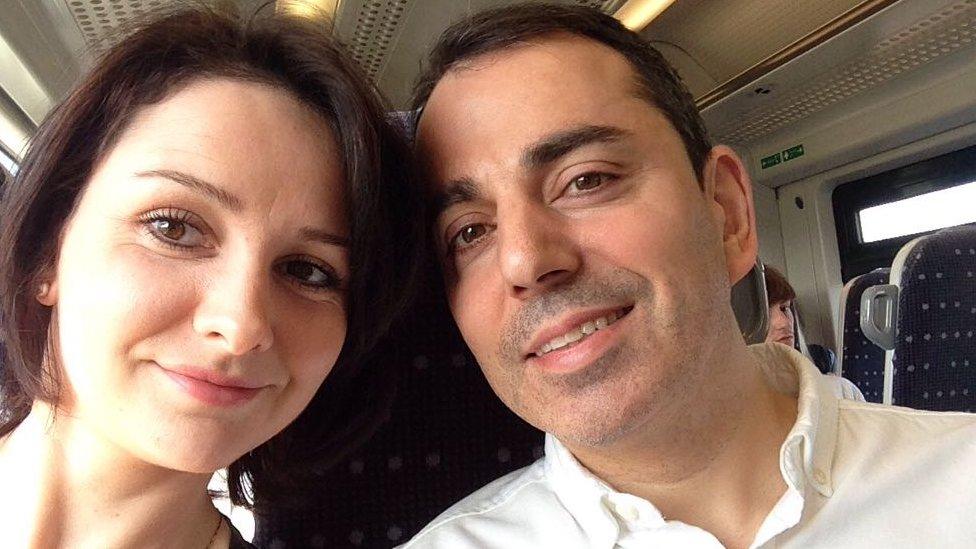
- Published15 August 2017
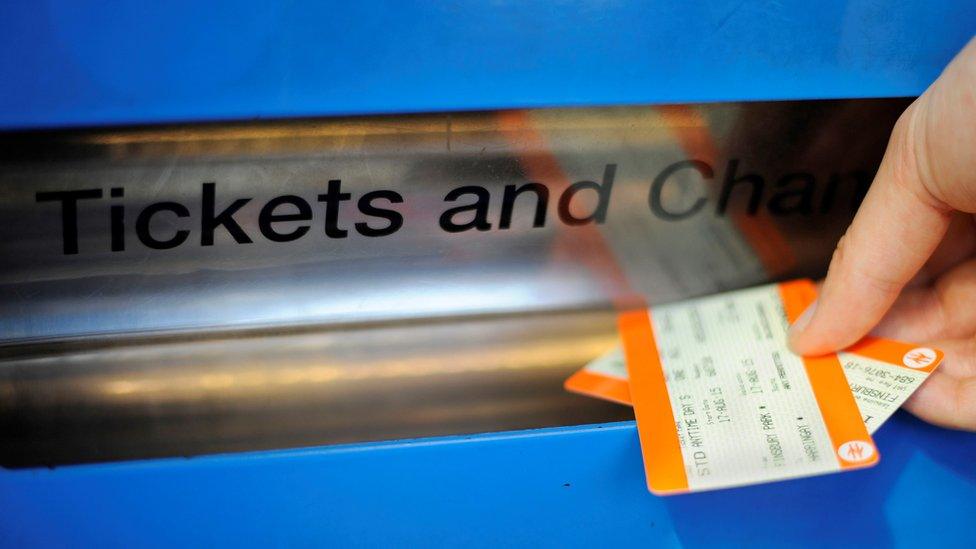
- Published15 August 2017
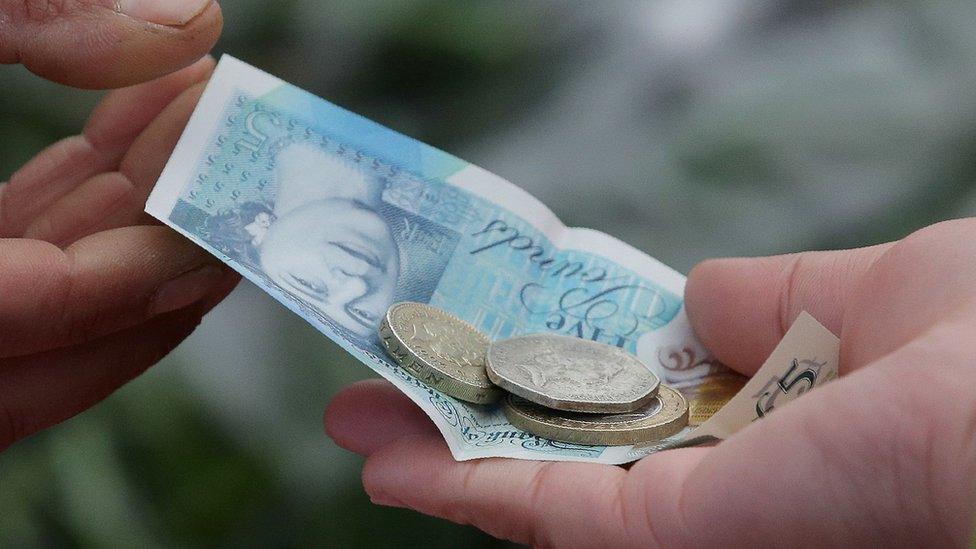
- Published5 July 2017
